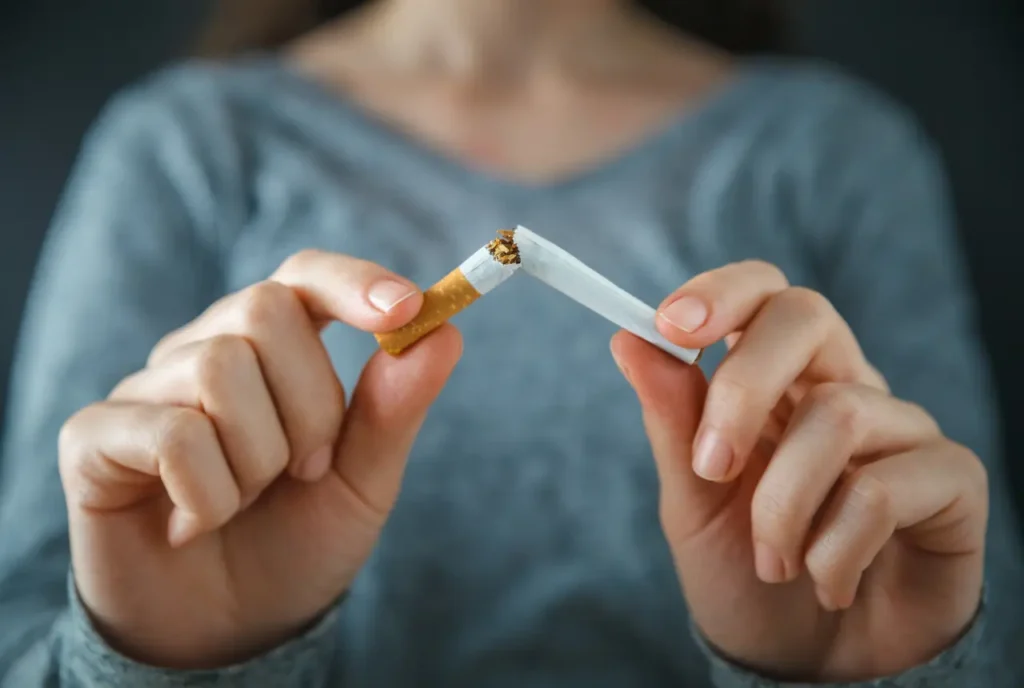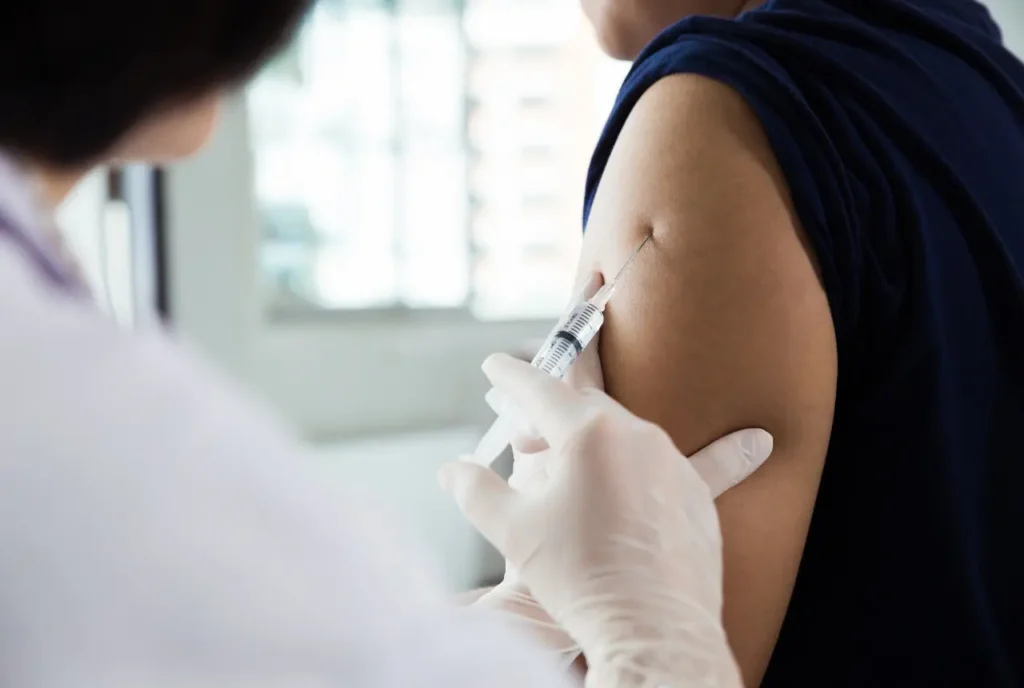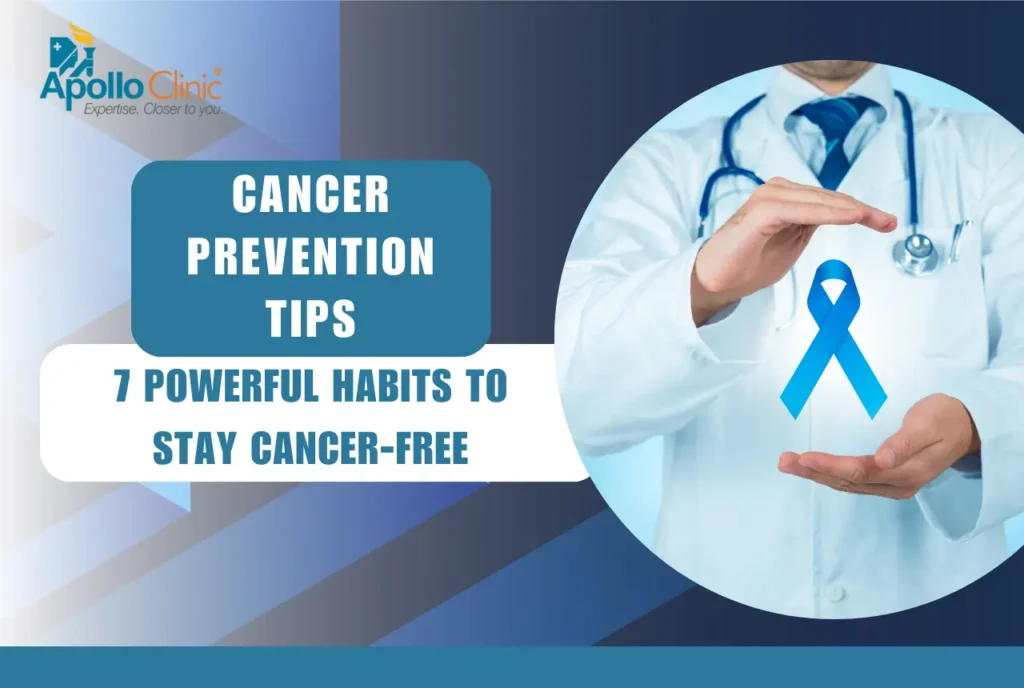Cancer Prevention Tips: 7 Powerful Habits to Stay Cancer-Free
Cancer casts a long shadow across the globe, affecting millions of individuals and families every year. While some risk factors like genetics are outside our control, the power to significantly decrease your chances of developing the disease lies within the choices you make every day.
This blog post dives into seven powerful cancer prevention tips and habits you can weave into the fabric of your life to not only reduce your cancer risk but also promote overall well-being.
Cancer Prevention Tips to Reduce Your Risk
Habit 1: Maintain a Healthy Weight and Be Physically Active

Carrying excess body weight is a significant risk factor for various cancers, including breast, colon, prostate, and pancreatic cancers. The American Institute for Cancer Research (AICR) recommends at least 150 minutes of moderate-intensity exercise or 75 minutes of vigorous-intensity exercise per week. Think brisk walking, swimming, cycling, or dancing – activities you can enjoy and incorporate into your routine.
The benefits of physical activity go far beyond weight management. Exercise strengthens your immune system, which is your body’s natural defense against illness, including cancer.
It also helps reduce chronic inflammation, a condition linked to an increased risk of various cancers. So, lace up your walking shoes, put on your dancing shoes, or grab your bike – get your body moving and reap the rewards of an active lifestyle.
Habit 2: Embrace a Nutritious Diet

Imagine your plate bursting with vibrant colors – that’s the essence of a cancer-preventive diet! Fill it with fruits, vegetables, and whole grains. These powerhouses are packed with antioxidants, which neutralize harmful free radicals that can damage cells and contribute to cancer development.
Fruits and vegetables are also excellent sources of fiber. Fiber helps keep your digestive system running smoothly and may play a role in protecting against colon cancer.
Don’t forget the whole grains! Whole grains are packed with nutrients and fiber, keeping you feeling fuller for longer and helping you maintain a healthy weight.
While you’re loading up on the good stuff, consider limiting red meat, processed meats, and refined sugars. Red and processed meats have been linked to an increased risk of colorectal cancer, while refined sugars can contribute to weight gain and inflammation, both of which can increase cancer risk.
Opt for lean protein sources like fish, poultry, or beans instead of processed meats. And remember, moderation is key – a small steak occasionally or a celebratory dessert won’t derail your healthy eating journey.
Habit 3: Limit Alcohol Consumption: Sip in Moderation

We all enjoy a relaxing drink after a long day, but heavy alcohol consumption can significantly increase your risk of developing various cancers, including breast, colon, liver, and head and neck cancers.
The American Cancer Society recommends avoiding alcohol altogether or limiting intake to one drink per day for women and two drinks per day for men.
A “drink” is defined as 12 ounces of beer, 5 ounces of wine, or 1.5 ounces of distilled spirits. It’s important to be mindful of portion sizes, especially when consuming sugary cocktails or mixed drinks.
If you choose to drink alcohol, do so in moderation and prioritize water and other healthy beverages throughout the day to stay hydrated.
Habit 4: Quit Smoking and Avoid Secondhand Smoke

Smoking is the single most preventable cause of cancer, period. It damages your lungs and increases your risk of lung cancer as well as other cancers throughout the body, including esophageal, bladder, and pancreatic cancers.
The harmful chemicals in cigarettes not only affect the smoker but can also harm non-smokers exposed to secondhand smoke.
Quitting smoking is the single best decision you can make for your health, not just to reduce your cancer risk but also to improve your overall well-being.
There are many resources available to help you quit smoking, including counseling programs, medication, and support groups. Talk to your doctor about a quit plan that’s right for you. Remember, quitting smoking is an investment in your health and future.
Habit 5: Protect Your Skin from the Sun’s Harmful Rays: Seek Shade, Slip on Clothes, Slop on Sunscreen
Skin cancer is the most common type of cancer in the United States, and the good news is it’s also highly preventable. The culprit? Ultraviolet (UV) rays from the sun. Here’s your sun protection mantra: Seek shade, especially during peak sun hours (10 am to 4 pm) when UV rays are strongest.
Slip on protective clothing with long sleeves, pants, and a wide-brimmed hat to cover exposed skin. And finally, slop on a broad-spectrum sunscreen with SPF 30 or higher, liberally applying it to all exposed skin and reapplying every two hours, or more often if swimming or sweating. Don’t forget areas like your ears, lips, neck, and the tops of your feet. Remember, a suntan is not a sign of health; it’s a sign of damaged skin.
By following these sun protection steps, you can significantly reduce your risk of developing skin cancer.
Habit 6: Get Regular Vaccinations: Your Armor Against Cancer

Vaccinations are powerful tools not just for preventing childhood illnesses but also for protecting against certain cancers. The human papillomavirus (HPV) vaccine, for example, guards against HPV infection, which can cause cervical cancer and some other cancers.
The Hepatitis B vaccine can help prevent liver cancer, and the Hepatitis A vaccine can reduce the risk of liver cancer in individuals already infected with Hepatitis B.
Talk to your doctor about recommended vaccinations for your age and health history. Staying up-to-date on vaccinations is an essential step in your cancer prevention strategy.
Habit 7: Manage Stress and Maintain a Healthy Sleep Routine

Chronic stress can take a toll on your physical and mental health, and some research suggests it may be linked to an increased risk of cancer. While eliminating stress might not be realistic, there are healthy strategies to manage it effectively.
Regular exercise, as discussed in Habit 1, is a powerful stress reliever. Yoga, meditation, and deep breathing exercises can also help promote relaxation and manage stress levels. Spending time in nature has been shown to have a calming effect, so take a walk in the park or simply sit outside and soak up the fresh air.
Prioritize adequate sleep (7-8 hours per night for adults) for optimal health. During sleep, your body repairs itself and strengthens your immune system, both of which are crucial for cancer prevention. Create a relaxing bedtime routine, establish a consistent sleep schedule, and ensure your bedroom environment is conducive to sleep – cool, dark, and quiet.
Early Detection is Key: Screening Recommendations
Early detection is critical for successful cancer treatment. There are various screening tests available for different types of cancer, and these tests can help identify cancer at its earliest stages, often before symptoms appear. Some common screening tests include:
- Mammograms: For breast cancer detection in women over 40 (schedule may vary based on individual risk factors).
- Colonoscopies: For colorectal cancer screening in adults typically starting at age 45 (may vary based on risk factors).
- Pap smears: To detect cervical cancer in women (schedule may vary based on age and HPV vaccination status).
- Low-dose CT scans: For lung cancer screening in high-risk individuals.
Consult with your doctor to determine the appropriate screening tests for you based on your age, family history, and other risk factors. Don’t be afraid to ask questions and discuss your individual needs. Early detection gives you the best chance of successful treatment and a positive outcome.
Additional Considerations and Lifestyle Factors
While the habits discussed above are powerful tools for cancer prevention, there are other factors to consider:
- Gut Microbiome: Research suggests a healthy gut microbiome, the community of microorganisms living in your intestines, may be linked to a lower risk of cancer. Maintaining a balanced gut microbiome through a diet rich in fiber and fermented foods like yogurt, kimchi, and sauerkraut may be beneficial.
- Dietary Supplements: Certain dietary supplements, like vitamin D, may offer some protection against cancer. However, it’s crucial to talk to your doctor before starting any supplements to ensure they are safe and appropriate for you. Avoid relying solely on supplements for cancer prevention; focus on a balanced and healthy diet.
- Environmental Factors: Exposure to certain chemicals and pollutants in the environment may play a role in cancer risk. While you can’t control all environmental factors, staying informed and advocating for clean air and water initiatives can be helpful.
Importance of a Balanced and Sustainable Lifestyle
The key to cancer prevention lies not in drastic measures but in adopting these habits as part of a holistic and sustainable lifestyle. Focus on gradual changes you can maintain in the long term.
Instead of a crash diet or an intense exercise routine you’ll quickly abandon, aim for small, sustainable adjustments that become a natural part of your daily life.
Celebrate your progress, no matter how small. Remember, even small changes can significantly impact your health over time. This journey is about creating a healthy and enjoyable lifestyle that empowers you to take charge of your well-being.
Conclusion
By incorporating these powerful cancer prevention tips and habits into your life, you can significantly reduce your risk of developing cancer. Remember, a healthy lifestyle and regular checkups with your doctor are crucial for optimal health.
The good news is that you have the power to make informed choices that can significantly impact your well-being. Take charge of your health today and start building a lifestyle that promotes not just disease prevention but also overall vitality and longevity.


